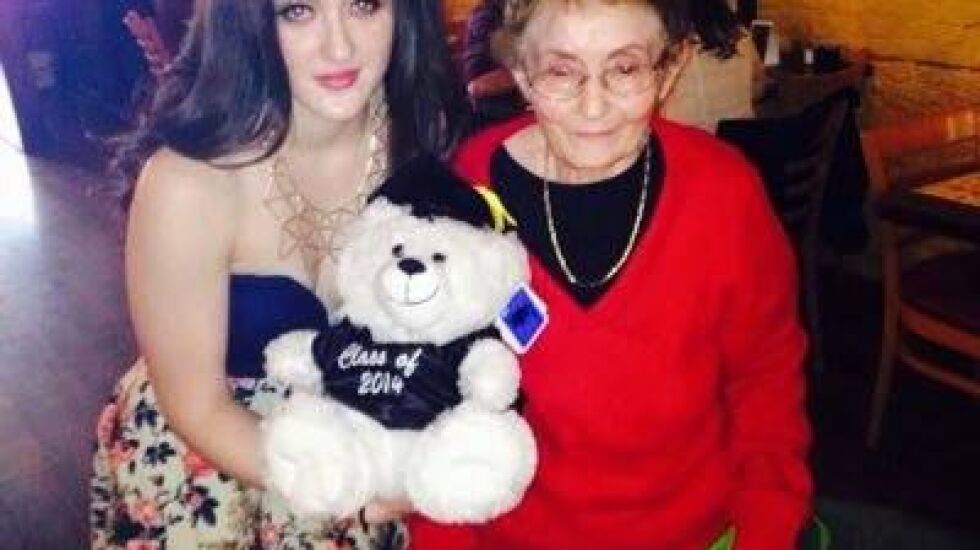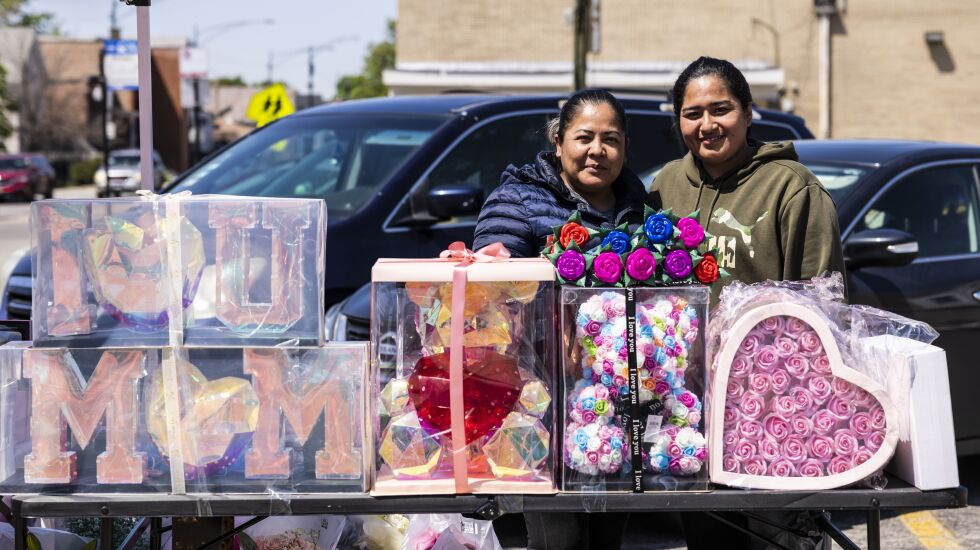
As the third anniversary of La Voz Chicago approached, our very small team was thinking about what stories to tell to celebrate our latest milestone.
With the Spanish section’s official launch date being May 10 — when a few Latin American countries celebrate their maternal figures — we figured a Mother’s Day story highlighting street vendors across the city’s vibrant Latino communities would make for a great feature.
Unfortunately, gathering the meat and potatoes of the story proved to be a bit difficult, as street vendors don’t normally take to the streets to sell flowers, chocolates and handmade crafts until just a couple of days before the holiday.
With the help of our senior director of audience engagement, Angela Massino; data visualization developer Jesse Howe; freelance illustrator David Alvarado, and a few others in the Sun-Times newsroom, we pieced together a gorgeous interactive that readers could scroll through. We just didn’t have enough content to fill it yet.
It took a lot of trial and error. We sent various reporters out to different neighborhoods searching for vendors with no luck.
The only lead I had came from somebody at Northeastern Illinois University. He told me of an undocumented student who works with her aunt to sell flowers to passing cars in and around Little Village.
Yulissa Martínez, a 26-year-old accounting student, told me she does it to give her 2-year-old daughter a solid future. With the money from her sales, she’d opened a bank account in her daughter Sabrina’s name.
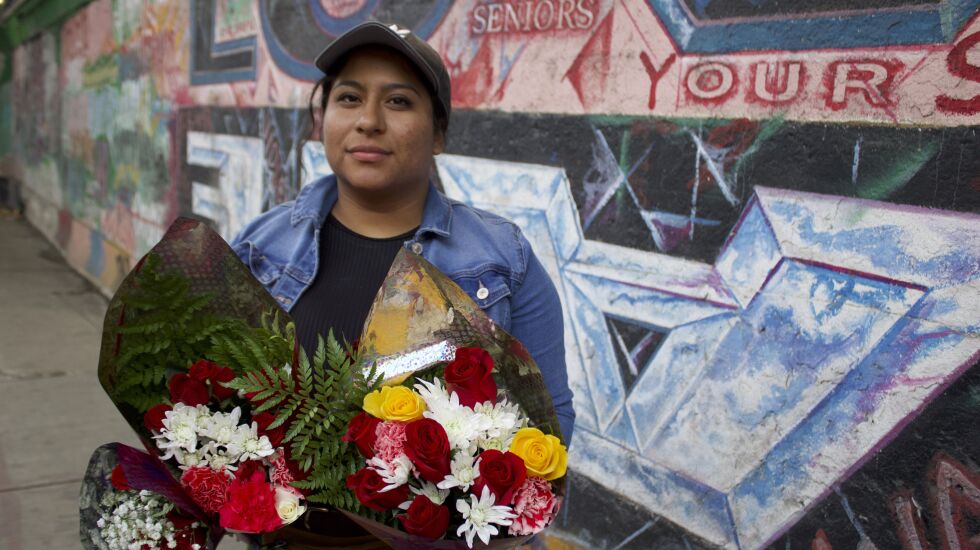
With the recent influx of mostly Venezuelan immigrants to the city, Martínez and her aunt have extended the opportunity to sell flowers on the street to at least a dozen others.
“It’s amazing to share with people and then share their dreams,” she told me. “It gives you hope, and it gives you motivation to be humble because there’s always people who are in need.”
While I was working on this, my own grandmother, Carmen Núñez, was admitted to the hospital within days of my interview with Martínez. She went in for deep vein thrombosis, among a host of other severe issues. My mom called me to tell me that her doctor gave her a six-month life expectancy at best.
I thought, “How am I supposed to write this story now?”
She’s been doing badly for some time. Over the years, her body has betrayed her due to severe arthritis. This woman once spent her days tending to her beloved rose bushes and tomato plants outside the Humboldt Park home she shared with my grandpa, José Núñez Ramos, a Korean War veteran.
She’d labor for hours in her kitchen hand-peeling fresh pigeon peas from the Puerto Rican market to make arroz con gandules (rice and beans) and now she was bedridden. Her hands and feet were twisted up, painfully and permanently.
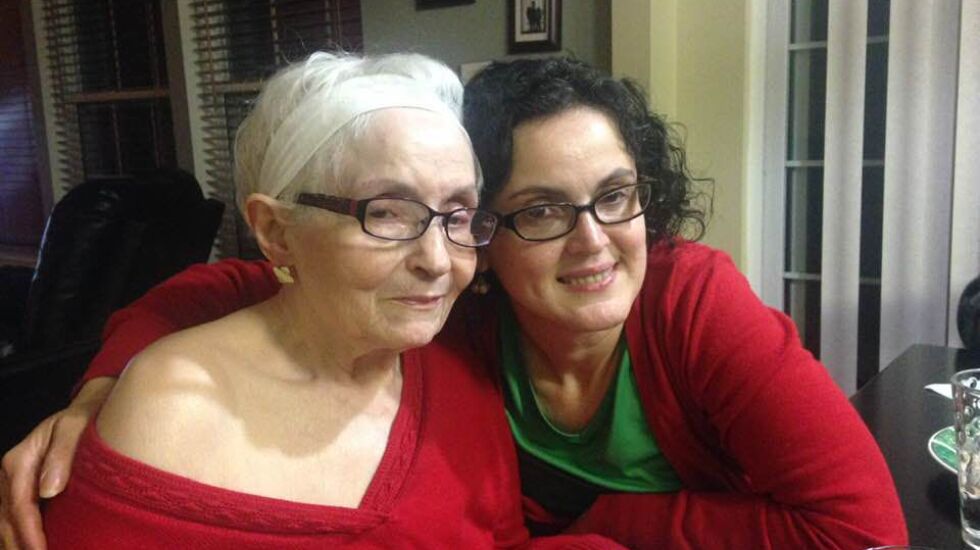
The news was bittersweet. I worried that at any second her condition would worsen. Her body was fighting hard.
But as professionals do, I carried on. Telling this story is what my abuela would want me to do.
Sun-Times photographer Ashlee Rezin met up with me on May 9 to search for more vendors. We didn’t have any solid leads, but knew that there had been some spotted near 51st Street and Western Avenue.
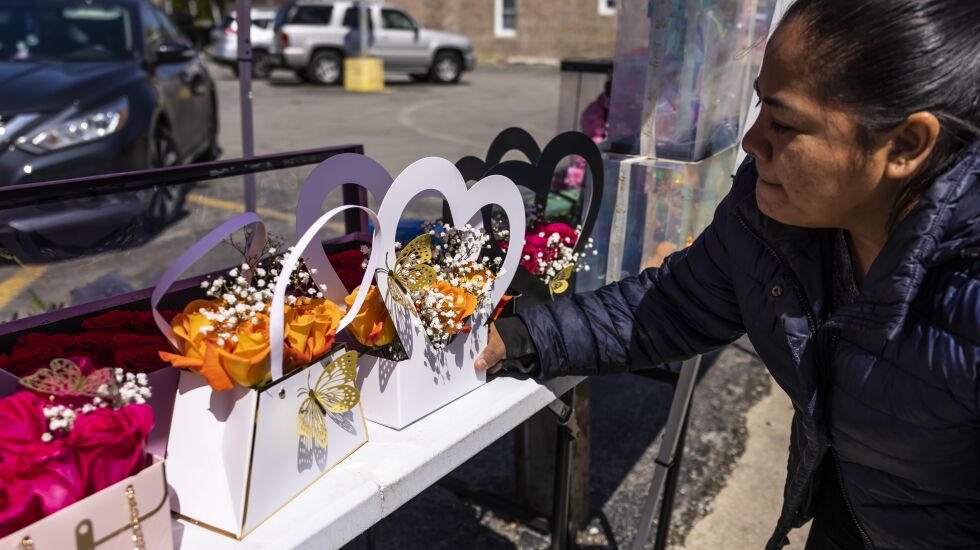
In total, we found three more mini-shops set up on street corners across the South Side. All of the sellers were immigrants.
Almost all spoke Spanish as their first language and told us that they sold flowers not only as a way to celebrate the holiday but to make a living. They were working hard to give their children and children’s children a good life.
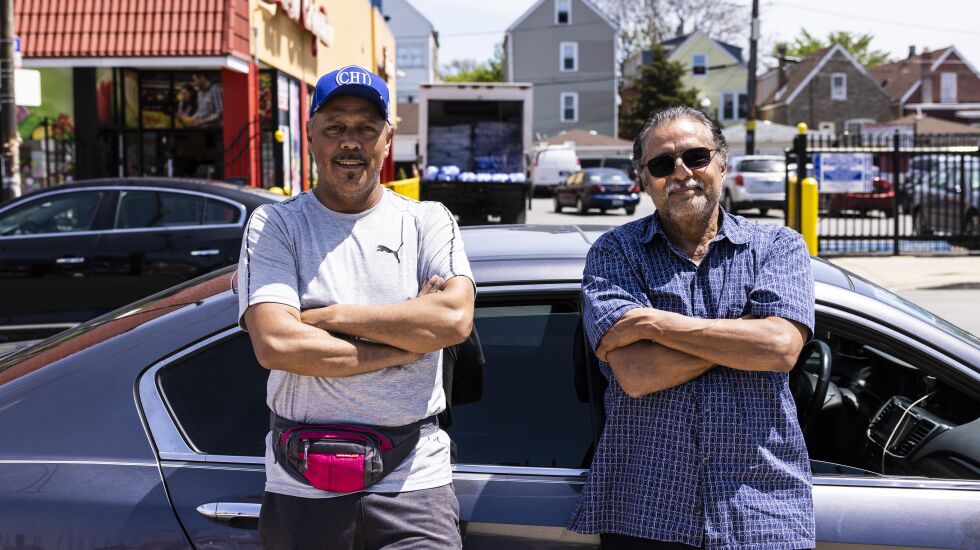
My deadline had been looming for weeks, and finally, the story pieces were all coming together.
The next day, I was surprised to see my story on the front page of the Sun-Times. Martínez texted me that her church community had seen the story that day and loved it. Later, she told me that seeing the Spanish version online made her cry.
That same day, I drove to my grandmother in the hospital with my copy of the Sun-Times. I was eager to show her the story.
Seeing her smile that day confirmed that it was worth all the stress of the weeks prior.
Ever since I started working at La Voz, being able to show my family my work in Spanish has been the highlight of being able to produce stories by and for Latinos.
She is fortunately still around, albeit much worse, but I know her suffering won’t be for much longer. When I buy or plant flowers, they will always be for her.
